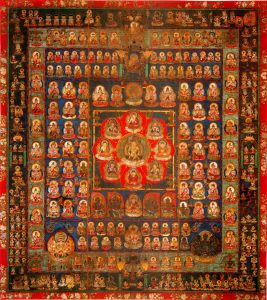I spent last night catching up with a buddy of mine who is just back from distant lands. We got to talking about perceptions of strength and weakness and how those perceptions get portrayed in media, how society treats them, and how both of us have been affected by those perceptions.
My friend is stereotypically the strong, silent type. Lots of compact muscle layered on a shorter frame with a strong jawline and piercing eyes. He has little tolerance for bullshit, tends not to sugar coat things, and is loyal to his dying breath. He’s the man you want beside you going into a fight. Superficially, if you saw him, you wouldn’t think anything fazes the guy. He projects strength and confidence and presence; plus he’s a good-looking dude. He doesn’t let his guard down, and his inner circle is fiercely protected; you don’t get in there unless he knows you have his back.
According to how strength is portrayed in the media, this guy shouldn’t want for anything. He’s got it all. Women are drawn to him even if they don’t really know how to handle him because he’s so utterly unlike the typical guy. He forges his own path, and tends not to give a shit what others think of him.
But once you get past the exterior, once you get to know him, you realize that while he is strong, he also needs love and support and a friendly smile. Yeah, he’s strong, but his strength was earned by waging constant battle against the insecurities that shackle the cowardly. Yes, he’s brave, but that courage was earned facing fears that hamstring others too timid to stand up for anything. He has scars and deep wounds from the constant betrayal of lesser souls who see in him someone they could never be because they are too weak to do what he has done.
He tries not to let these things bother him. He has grand ambitions, goals, quests, and the like. He sees the bigger picture and knows that the pitiful examples of humanity that have betrayed him or hate him or wish him ill will have their own private hell to endure here on earth – a hell of wasted days, lazy uninspiring Facebook status updates, and a failure to leave any sort of legacy for future generations – and that that is punishment enough for their actions. (We disagree a bit here since I think that sometimes these people need a good ass-kicking, but whatever…)
But the truth is, it does hurt. This strong man does feel pain. He feels the cut of betrayal like a keen knife that sears deep into his soul – especially when it comes from someone he might have once loved and trusted.
Society rejects that notion that he could be hurt. Strength in society is viewed very much as an absolute quality. If you’re strong, you don’t need anything. You don’t need love or support or a wink or a hug or a text or an invite to grab a drink. Or even just the knowledge that someone has your back.
You’re all set.
Except you’re not.
Underneath his hard exterior, my friend is riotously funny. His sarcasm is brilliant. He’s a ferocious romantic who loves the idea of sweeping a woman off her feet and making her feel like she is his entire world. He writes poetry, knows the meanings behind every color of rose, and can talk philosophy for hours on end.
In some ways, his strength enables him to understand weakness even more than most would ever realize. In some ways, he hurts more because it takes a far more grievous wound to affect him due to his strength.
But, y’know…he’s strong, so he’s totally fine.
Right?
Wrong.
Strength gets taken for granted; weakness gets its own parade.
Look at how society rallies around supposed “underdogs.” And I say supposed because the fact is, a true underdog is someone with grand ambition and goals, who, for one reason or another, has yet to accomplish those goals. True underdogs are brimming with the desire to get out there and get shit done.
Most of the so-called underdogs that get celebrated today are actually just lazy people who do a good job of talking up their suffering to the point that they achieve a pity play from those who buy into their bullshit. These so-called underdogs continue to remain underdogs, because they actually *aren’t* underdogs at all. They’re just whiny do-nothings. Can you imagine the story of David and Goliath if David had just sorta laid around, played video games all day, and talked about what he’d do one day, y’know, if his back kinda didn’t ache right now and hey, what are you guys doing, wanna hang out?
Don’t get me wrong, the second David is pretty freakin’ sad. But he doesn’t need a pity party; he needs a swift kick in the ass – he needs someone to tell him to wake the hell up, go grab life by the horns, and make some friends. The real David had bold dreams to take on a huge force of evil. He literally walked out there knowing the odds were stacked against him. THAT is something to celebrate and get behind.
Then there are the malicious folks who are beset by tragedy. And all of a sudden all those past transgressions get forgotten. People rally around them and proclaim the next coming of Jesus Christ.
I don’t wish ill on anyone; and tragedy anytime it strikes is indeed tragic and I only wish those affected by it the best. But let me be blunt: tragedy does not negate past transgressions. Ownership and apologies negate past transgressions.
Unless that tragedy makes those malicious people wake up and realize that they have been utter douchebags and then compels them to set about rectifying everything they did, there’s no need to rally behind them. Some would argue that the tragedy that befell them is simply Karma making its long overdue appearance. Put out enough bad energy into the universe and sooner or later the universe is gonna stamp “return to sender” on the envelopes and send them right back to you – sometimes all at once. I don’t know if that’s true or not, but I sure don’t feel like testing the theory out. I try to put out good in the hopes that good comes back to me.
I suppose it’s understandable. Society tends to celebrate the weak because most people are, in fact, weak. So we see a lot of ourselves in those who put their misery on display. We have more in common with someone who has been trampled on and has no more desire to stand up and fight than we do with the true warrior who gets knocked down and gets back up every single time with a look that says, “is that all you got?”
Strength is intimidating. But strong people aren’t one dimensional stereotypes. I told my buddy last night about a time I was out with friends. One of them was leaving and gave the buddy next to me a big hug. I got a wave. When I jokingly asked, “What – I don’t get a hug?” this friend looked at me strangely. “You want a hug?”
Well, yeah…I do want a hug. I like giving hugs. I like getting hugs (good hugs, mind you, not those crappy ones most people pass off) I’m a hugger. I’m also strong. But that doesn’t mean I don’t appreciate sincere forms of affection from a friend.
I have another close pal who is near the pinnacle of his profession. He’s driven, focused, and strong. He’s also a big softie, a romantic, and has a brilliant mind. I count myself lucky and extremely fortunate to be his friend. But other people I talk to say that he’s distant.
He’s distant for the same reason many strong people are distant: we’re wondering if you can actually hang with us. We’re wondering if you can understand our focus and drive – if you hold yourself to the same standards that we hold ourselves to. We’re wondering if you’re someone strong, who knows what it’s like to have a dream and chase that fuckin’ dream to the end of the universe and back until we accomplish it. We’re wondering if you know how much we’ve sacrificed to get to where we are and to where we will go. We’re wondering if you see the scars we have from doing what most deem impossible. We’re wondering if you’re going to stab us in the back when we let you into our world. We’re wondering if you’re going to give back the same level of intensity and affection that we will give to you. We’re wondering all of these things because we’ve seen it all. The path we walk is a lonely one, but the experiences we have are shared by very few and the views we see are seen by even fewer.
We’re strong, yes.
But that doesn’t mean we don’t feel pain or that we don’t get hurt or feel alone. If anything, the strong are, in fact, the true underdogs because we are the ones that face down immense odds and give everything we have in pursuit of dreams, goals, and higher ideals.
So celebrate strength and not weakness & douchebaggery. Don’t be intimidated by the strong. Admire and respect it and never, ever betray it.
And by the way, we’d still really like that hug.






